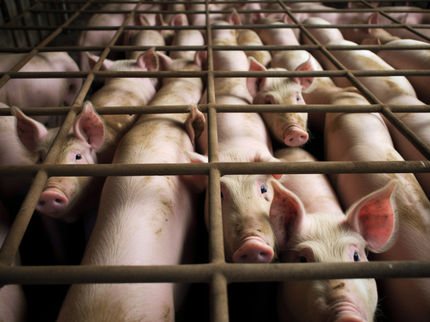German farmers reject proposals for meat tax; production slumps
Advertisement
The German Farmers' Association rejected proposals by politicians on Wednesday for an increase in value-added taxes on meat.
"It's not the tax authorities, but the farmers who need funds and support for the further development of livestock farming," the association's Secretary General Bernhard Kruesken said.
Kruesken was reacting to a plan to increase the VAT on meat to 19 instead of 7 per cent and spend the additional revenue on greater animal welfare.
The agricultural policy spokesman of the Greens in the Bundestag, Friedrich Ostendorff, had called in Wednesday's edition of Die Welt newspaper for the "ending of the VAT reduction for meat and the earmarking of [the difference] for more animal welfare."
Animal production is also considered one of the greatest contributors to harmful greenhouse gas emissions that contribute to climate change.
Specialist politicians from the ruling coalition of the centre-left Social Democrats (SPD) and the conservatives (CDU/CSU) had also shown themselves in principle open to the idea when asked by Die Welt.
Kruesken said that neither the welfare of the animals nor the mitigation of climate change is served if German farmers "continue to invest in more animal welfare and the market is supplied with low-price alternatives from other EU countries with lower animal welfare standards."
A binding nationwide labelling system for animal welfare is needed that includes meat, he said.
In addition, a meat tax would "go nowhere" because building law and licensing procedures are currently blocking the construction or rebuilding of buildings for livestock.
The debate rages as slaughterhouses in Germany produced less meat in the first half of 2019 than in the same period of the previous year.
The meat quantity including poultry declined by 2.6 per cent to 3.9 million tons, the Federal Statistical Office in Wiesbaden said on Wednesday.
A total of 29.4 million pigs, cattle, sheep, goats and horses were slaughtered in the first six months of the year, the office reported.
Pork, which accounts for around two-thirds of Germany's commercial meat production, fell by 2.7 per cent to 2.6 million tons, meaning that 1.2 million fewer animals were slaughtered.
However, the amount of beef produced rose slightly by 0.7 per cent to 543,300 tons; Although more than 21,000 fewer animals were killed, the carcass weight increased.
For poultry, the volume decreased by 0.7 per cent to 786,800 tons.
The statistics office did not give reasons for the decline in meat production. (dpa)


































































